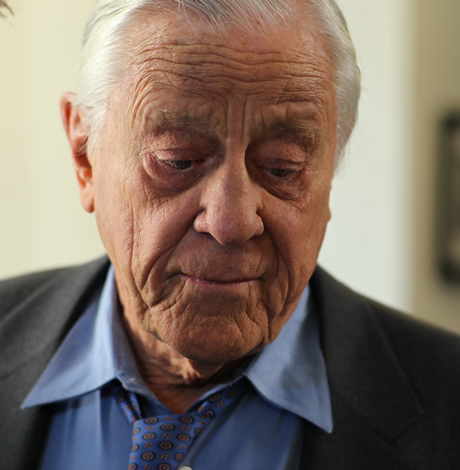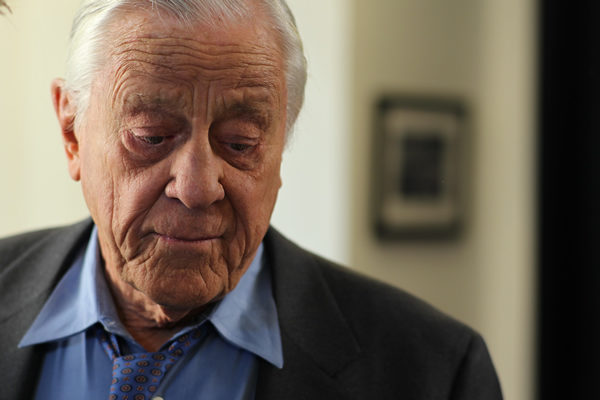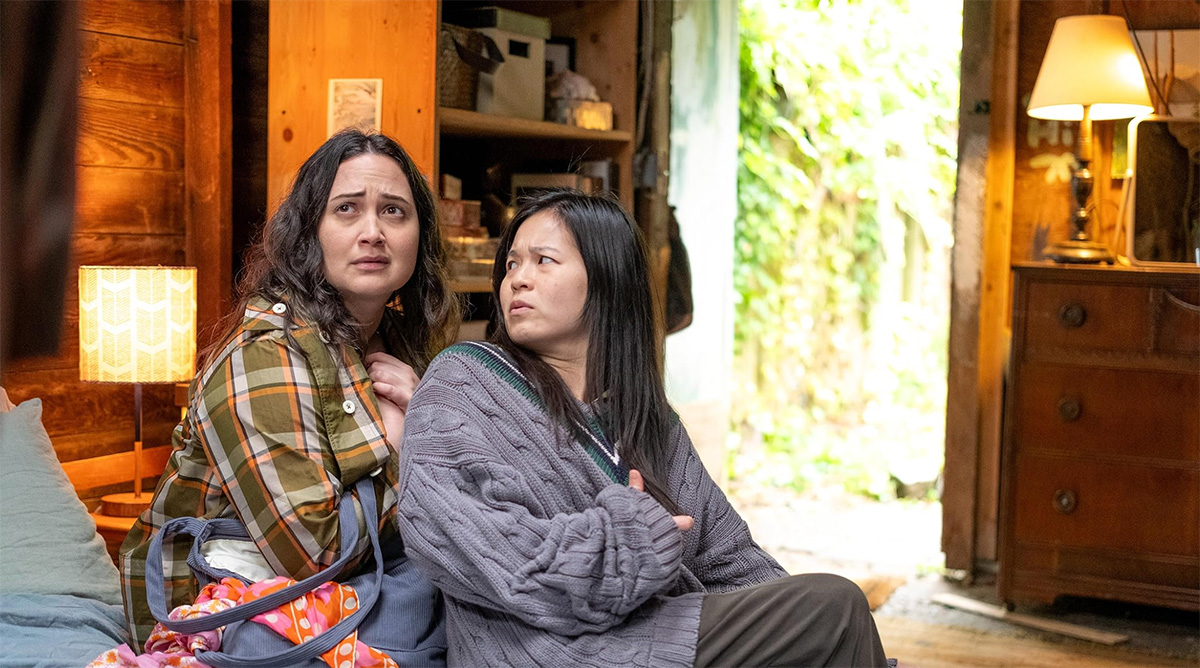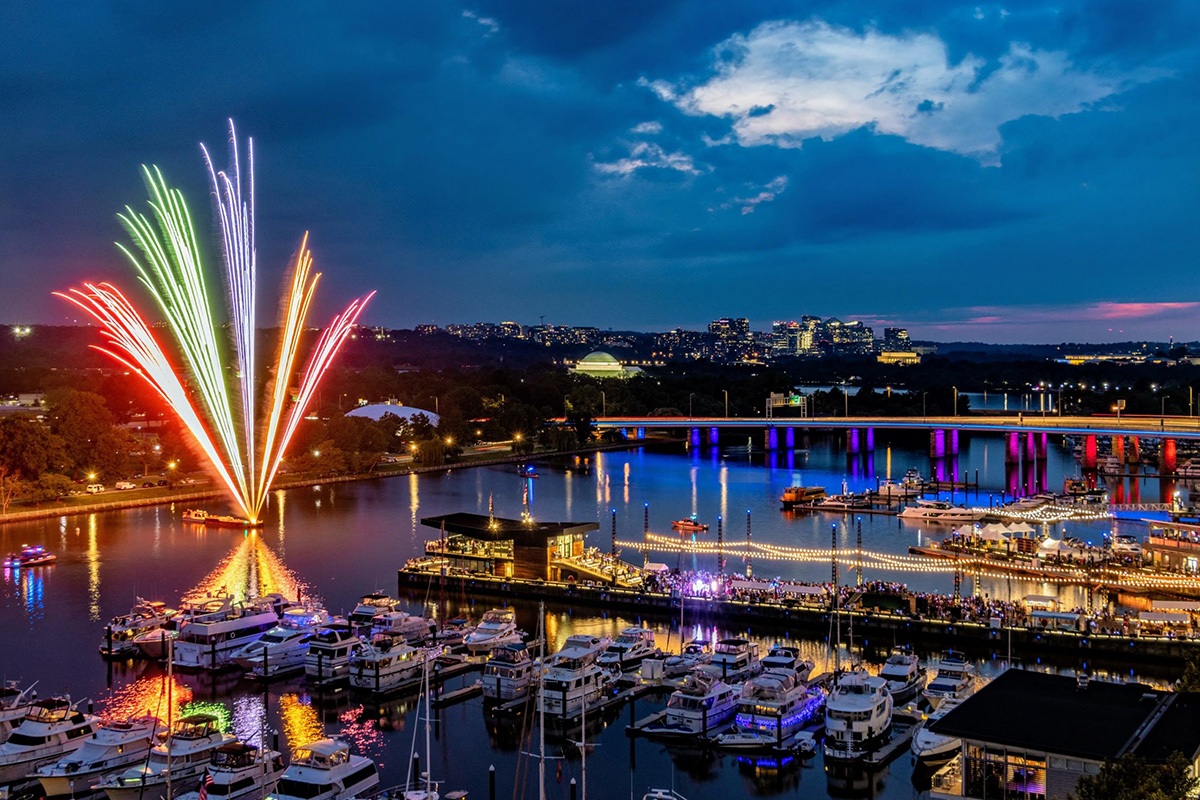Arts & Entertainment
Before Stonewall, newspapers complicit with police in gay bar raids


Fifty years ago, members of the LGBT community tired of continuous police raids on gay bars were driven to riot in the streets of New York City after the latest incursion at the Stonewall Inn on the evening of June 26, 1969.
But police raids on gay bars in the days before the Stonewall riots went hand-in-hand with the subsequent reports in newspapers the next day outing individuals caught in the raids, which would have potentially blacklisted them for the remainder of their lives.
In terms of Washington news coverage, the authority on newspapers outing gay men caught in police raids is Edward Alwood, a former CNN correspondent and now adjunct lecturer at the Philip Merrill College of Journalism at University of Maryland, College Park.
Alwood wrote about the practice in his 1996 book “Straight News: Gays, Lesbians, and the News Media,” and spoke about it in an interview with the Washington Blade.
“Washington was very different from New York,” Alwood said, “in that so much of the gay community here was connected with the federal government, and for that reason…gay men were much more closeted here and much less likely to protest as they did in New York.”
That perspective within D.C.’s gay community started to change, Alwood said, when gay rights pioneer Frank Kameny was outed, lost his job in the federal government as an astronomer and formed the Mattachine Society. Nonetheless, Alwood said during that time there would be newspaper articles reporting on gay raids that named individuals who were caught.
Reading from his book, Alwood said the D.C. press after World War II made vague references to homosexuals in describing street crimes, “particularly police campaigns to clean up public parks, including Lafayette Park across from the White House.” (Lafayette Park had been a place where gay men would meet to have sex discreetly.)
The Washington Post in the 1940s, Alwood said, described how officers shuttled groups of men from the park to the city jail throughout one night in July 1947 as 41 were arrested in the park.
The Washington Star reported that the metropolitan police staged a raid just to see who the men were. Similarly, the Post celebrated a crackdown a year later, when a headline read, “One-Man Vice Squad Arrests Eight More.”
“The article lavished praise on a handsome undercover officer who was deemed the the city’s most successful weapon in combating vice,” Alwood said. “Neither newspaper explained why the police felt compelled to target law-abiding citizens because they were considered unwelcome in public parks.”
Alwood quoted Benjamin Bradlee, the Post editor during its Pentagon Papers and Watergate coverage in the 1970s, as dismissive of the coverage in reflections of the time when he started at the newspaper covering vice on the crime beat.
“The police sent these guys into men’s rooms where they sort of lollygag around to see if anybody would make a pass at them,” Alwood quoted Bradlee as saying. “They would make sure the press heard about it. The Post never made a big deal out of it. We had little one paragraph that had that no news value, of course, but that’s what it was.”
For lesbians, Alwood said, the situation was different. For starters, sodomy was an offense perceived as something only men could commit, he said, so homosexual acts weren’t considered against the law. There were no lesbian bars, he said, so women met instead at women’s homes.
“They had these social clubs, so that’s part of the difference that happened, which is why so many more men wound up having their names and their ages and their street addresses listed in the newspapers,” Alwood said.
Nonetheless, Alwood said there was coverage of lesbians. One piece in the Washington Times-Herald, drew on the Red Scare of a Russian threat during the Cold War for a sensational article.
Under the headline, “Reds entice women here in sex orgies,” the article described an alleged plot by Russian agents to entice women employees of the State Department into homosexuality,” Alwood said.
“Russian agents were waging a systematic campaign to bring women employees of the State Department under their control by enticing them into a life of lesbianism,” Alwood said. “As many as 65 or 70 persons attended a single one of these lavish get-togethers, according to a congressional committee. Many were garbed in rich Oriental costumes to help them get into the spirit of things.”
Such coverage isn’t found today in Washington-area newspapers, which have been accepting of the D.C. LGBT community and seek to capitalize on LGBT events, such as Capital Pride. The Post, however, didn’t respond to the Washington Blade’s request for comment on past coverage outing gay men and whether any formal decision was made to change it.
Alwood said he’s unaware of any one instance that indicated “any flipping of the switch, so to speak,” but said the arrest of Walter Jenkins, a close aide to former President Lyndon Johnson, in 1964 on “moral charges” at the YMCA was a turning point.
“I think it was a wake-up call for journalists in this city because now it wasn’t just anonymous low-ranking people in men’s rooms and parks getting arrested, it was a high-level front page story of a presidential aide,” Alwood said. “And I think as a result of that, I’m just guessing, more journalists, such as those at the Post, realized they knew gay people and they didn’t fit the stereotype.”
Also at that time, Alwood said, more and more D.C. gay groups were protesting police actions, which led to a re-examination of the strict laws.
One period that marked a change, Alwood said, was when Albert Finney became managing editor of the Post. During his tenure, Alwood said Finney assigned a reporter to write an in-depth series about gay people in D.C.
“The series was stunning for its time,” Alwood said. “It was in-depth, bold, insightful. Though its premise rested on old stereotypes and clinical language, like homosexual, it pushed the boundaries of ignorance and denial to a new level of openness.”
Movies
Heartfelt ‘Wedding Banquet’ remake a romcom worth seeing
Mishaps, crossed wires, conflicts are all part of the fun

Creating a worthy remake can be a tricky proposition, especially when the movie being remade is a beloved classic – but that doesn’t mean it’s an impossible one.
Consider Andrew Ahn’s new version of 1993’s “The Wedding Banquet,” a film that put future “Brokeback Mountain” director Ang Lee on the proverbial map in America, which opens in theaters this weekend after a debut at Sundance earlier this year. The original, an American/Taiwanese production which became a surprise hit in the U.S., broke ground with its story — a culture-clash comedy of manners about a queer romantic triangle attempting to stage a sham wedding, it was quickly embraced by LGBTQ audiences thrilled to see representation on the big screen and positive representation, at that, in an era when it was even scarcer than it is today. To undertake a remake of such a film is a bold move, to say the least.
Yet gay Korean American writer/director Ahn (“Spa Night,” “Fire Island”) – has built his blossoming career on films about queer relationships among Asian American characters, with as much (or more) emphasis on family, both biological and chosen, as on romantic partnership; It seems natural, perhaps, for him to reinterpret this influential classic through his own lens, and he’s already proven himself as a filmmaker whose strengths line up perfectly with the material.
Even so, Ahn hedges his bets, perhaps, by collaborating on the new screenplay with James Schamus, who also co-wrote the original (along with Lee and Neil Peng), and the result is a movie that – although it recrafts the original romcom for a newer age and reconfigures its central relationships a bit to “up the ante” on its complications – stays relatively faithful to the broad strokes of its plot.
In this iteration, the New York setting is transposed to Seattle, and the plot revolves around not just one queer romance, but two: Chris and Min (Bowen Yang and Han Gi-Chan), a stalled grad student and his South Korean boyfriend, and their lesbian friends-and-landladies Lee and Angela (Lily Gladstone and Kelly Marie Tran), who are struggling to become parents through expensive IVF treatments. Min, an artist whose temporary visa is about to expire, wants to stay with Chris and build a life in America, but his grandmother (Youn Yuh-jung) – currently running the vast family business empire to which he is heir – wants him to come home and claim his place in the organization. A wedding to Chris would secure him the green card he needs to defy his grandmother’s demands, but it would also mean outing himself as gay and potentially being cut off from his inheritance. As a solution, he offers to pay for Lee and Angela’s fertilization procedure in exchange for a “green card wedding” with the latter, ensuring that he can remain in the U.S. while also remaining in the closet to his family.
Of course it’s an idea as bad as it sounds, but despite some reticence, the couples agree to the plan; but when grandmother decides to come to America and meet the bride in person, the four of them must attempt to pull off a masquerade that escalates far beyond their expectations after she insists on putting on a traditional – and elaborate – Korean wedding worthy of her grandson’s exalted status, all while wrestling with the ambivalence and doubts that begin to encroach on their relationships as the scheme begins to fray at the edges.
Those who’ve seen the original already know that things don’t play out exactly as planned – and anyone who hasn’t won’t be surprised when it doesn’t, anyway. We already told you it was a bad idea.
That, of course, is the charm of the romcom, a genre in which mishaps, crossed wires and conflicts are all part of the fun, and in any case it gives Ahn’s film the opportunity to explore – as Lee did with the original – the more serious and relatable challenges of reconciling our queerness with the deeply ingrained traditions of our cultural background; he does so with gentle wit and an equal measure of respect, but he’s not above getting laughs by pointing up the sheer absurdity that sometimes goes along with the process. Neither does he hesitate to delve into the messiness of queer relationships, even (and perhaps especially) with lifelong friends, or the deep insecurities and self-criticisms which get in the way of sorting them out.
To these ends, “Wedding Banquet” relies heavily on its cast, who embrace and clearly relish the chance to flesh out these characters. Yang brings his inevitable “SNL” star power to the table but downplays the wackiness in favor of a more nuanced tone, and Gi-Chan shines as his pragmatically idealistic partner; Gladstone’s intelligence and authenticity is a grounding force, while Tran counterpoints her with an eminently likable turn as her spunky-but-anxious misfit of a girlfriend – and the resonance they each bring to the prospect of motherhood highlights the longing for family and legacy that so many queer couples carry as they build their lives together.
It’s not all about the couples, though. Veteran Chinese American actress Joan Chen (“Tai Pan,” “Twin Peaks”) is a scene stealer as Angela’s hyper-supportive mom, whose participation in her daughter’s “lavender wedding” requires her to go against her deepest instincts as a proud ally, and Bobo Le provides a further connection to the theme of family with a charming performance as Yang’s tomboy-ish little sister. The anchoring performance, however, comes from acclaimed Korean star Yuh-jong, whose shrewd, savvy, and staunch portrayal of Gi-Chan’s power player grandma adds a much-needed dose of level-headed wisdom into the midst of the whirlwind.
In the end, Ahn’s update of Lee’s classic comedy scores big points for honoring the original’s message of acceptance and embracing the notion of reimagining our ideas of traditional family structures to meet the needs of an ever-changing world; it also succeeds in maintaining a heartfelt sense of empathy for each of its characters, all of whom appeal to us precisely because of their imperfections and their hangups. None of them are perfect, but all of them are perfectly human, which goes a long way toward making Ahn’s remake feel like more than just the slickly-made feel-good romcom it resembles.
And yet, given the screwball potential and the endless possibilities for farcical developments in the convoluted deception attempted by its sets of lovers, Ahn’s “Wedding Banquet” could have been funnier. Leaning into an idealized and sentimental perspective as it gracefully brings its characters’ lives into place, it occasionally feels a bit “precious,” too “Hollywood” to be believed.
Again, however, this is part of the charm of the romcom: if generations of straight audiences have gotten the chance to buy into idealized big screen fantasies about life and love, then why shouldn’t we enjoy the same privilege?
With that in mind, “The Wedding Banquet” makes for a perfect opportunity to entertain and validate ourselves – and even if it doesn’t tickle your funny bone, it’s a generous enough feast for your queer soul that it deserves you to see it.
Just make sure you bring somebody special to share your popcorn with.
a&e features
Peppermint thrives in the spotlight
In exclusive interview, she talks Netflix show — and the need to resist Trump’s attacks

As an entertainer, there’s not much that Peppermint hasn’t done. She’s a singer, actor, songwriter, reality TV personality, drag queen, podcaster and the list goes on. Most importantly, as an activist she has been an invaluable role model for the trans, queer, and Black communities.
She’s a trailblazer who boasts an impressive list of ‘firsts.’ She is the first out trans contestant to be cast on “RuPaul’s Drag Race” (Season 9). She is the first trans woman to originate a principal musical role for Broadway’s “Head Over Heels.” She was also the first trans woman to compete in the runaway hit series “Traitors,” on Peacock, and she is the ACLU’s first-ever Artist Ambassador for Trans Justice. Her accolades are a true testament of the courage it took for Peppermint to live her authentic self.
We caught up with Peppermint to chat about her activism, taking on bigger roles on screen, our current political and social climate and life beyond the lens. For Peppermint, coming out as trans was not just a moment of strength—it was a necessity.
“It unfolded exactly as I had imagined it in terms of just feeling good and secure about who I am. I was in so much pain and sort of misery and anguish because I wasn’t able to live as free as I wanted to and that I knew that other people do when they just wake up. They get dressed, they walk out the door and they live their lives. Being able to live as your authentic self without fear of being persecuted by other people or by the government is essential to being healthy,” Peppermint tells the Blade in an exclusive interview.
“I was not able to imagine any other life. I remember saying to myself, ‘If I can’t imagine a life where I’m out and free and feeling secure and confident and left alone, then I don’t even want to imagine any kind of a life in the future,’” says Peppermint.
Recently, Peppermint returned for season 2 of Netflix’s comedy “Survival of the Thickest.” She added some spice and kick to the first season in her role as a drag bar owner. This time around, her character moves center stage, as her engagement and wedding become a major plot line in the show. Her expanded role and high-profile trans representation come at just the right time.
“It’s the largest acting role I’ve ever had in a television show, which my acting degree thanks me. It feels right on time, in a day where they’re rolling back trans rights and wanting to reduce DEI and make sure that we are limited from encouraging companies, corporations, industries, and institutions from not only featuring us, but supporting us, or even talking about us, or even referencing us.
“It feels great to have something that we can offer up as resistance. You can try to moralize, but it’s tougher to legislate art. So it feels like this is right on time and I’m just really grateful that they gave me a chance and that they gave my character a chance to tell a greater story.
Peppermint’s expanded role also accompanies a boom in queer representation in Black-powered media. Networks like BET and Starz and producers like Tyler Perry, are now regularly showcasing queer Black folks in main story lines. What does Peppermint think is fueling this increased inclusion?
“Queer folks are not new and queer Black folks are not new and Black folks know that. Every Black person knows at least one person who is queer. We are everywhere. We have not always been at the forefront in a lot of storytelling, that’s true, and that’s the part that’s new. It’s Hollywood taking us from the place where they usually have held us Black, queer folks in the makeup room, or as the prostitute, as an extra—not that there’s anything wrong with sex work or playing a background performer. I’ve played the best of the hookers! But those [roles] are very limiting.
“Hollywood has not historically done and still does not do a very good job of, including the voices of the stories that they make money [on]. And I think they’re realizing [the need] to be inclusive of our stories and our experiences, because for a long time it was just our stories without our actual experiences. It’s also exciting. It’s dramatic. It makes money. And they’re seeing that. So I think they’re just dipping their toes in. I think that they’re going to realize that balance means having us there in the room.”
Peppermint’s activism is tireless. She has raised more than six figures for prominent LGBTQ rights groups, she continues to speak around the nation, appears regularly on major media outlets addressing trans and LGBTQ issues and has been honored by GLAAD, World of Wonder, Out magazine, Variety, Condé Nast and more—all while appearing on screen and onstage in a long list of credits.
Now, under the Trump administration, she doesn’t have time to take a breath.
“I wouldn’t be able to do it if it weren’t second nature for me. Of course, there are ups and downs with being involved with any social issue or conversation and politics. But I am, for now, energized by it. It’s not like I’m energized by like, ‘Ooh, I just love this subject!’ right? It’s like, ‘Oh, we’re still being discriminated against, we gotta go and fight.’
“That’s just what it is. I get energy because I feel like we are quite literally fighting for our lives. I know that is hyperbole in some regards, but they are limiting access to things like housing, healthcare, job security and not having identification. Passport regulations are being put in a blender.”
Peppermint also mentions her thoughts on the unfair mandates to remove trans service members and revoke the rights and resources from the veterans who worked their whole lives to fight for this country.
“When you strip all these things away, it makes it really difficult for people to have a life and I know that that is what they’re doing. When I look around and see that that is what is at stake, I certainly feel like I’m fighting for my life. And that’s energizing.
“The only thing that would be the most rewarding besides waking up in a utopia and suddenly we’re all equal and we’re not discriminating against each other—which probably is not happening this year—is to be able to be involved in a project like this, where we can create that world. It’s also being built by people who are a part of that story in real life and care about it in real life.”
Peppermint is clear on her point that now is the time for all of the letters of the LGBTQ community to come together. Everyone who is trans and queer should be joining the fight against the issues that affect us all.
“Just trust us and understand that our experiences are tied together. That is how and why we are discriminated against in the way[s] that we are. The people who discriminate—just like how they can’t really distinguish between somebody who’s Dominican and somebody who’s African American — you’re Black when you’re getting pulled over. We are discriminated against in much the same way. It’s the same with being trans or queer or gender non-conforming or bi, we all have our own experiences and they should be honored.
“When laws are being created to harm us, we need to band together, because none of y’all asses is gonna be able to stop them from getting rid of marriage equality—which is next. If you roll the tape back to three years ago when somebody was trying to ask me about drag queen bans on readings in school, I was saying they’re coming for trans rights, which comes for bodily autonomy and abortion rights, which comes for gay marriage rights. Those three things will be wiped out.
Peppermint doesn’t take a pause to get fired up and call gay folk out in their obligation to return the favor to the Black trans community.
She shares with us her final thoughts.
“You cis-gender homosexuals need to stand the fuck up and understand that we are standing in front of you. It’s very difficult to understand this and know this, but so many of the rights that we have were hard fought and won by protest and by people fighting very hard for them. And many of those people in every single instance from the suffrage movement, obviously Civil Rights, queer rights, the AIDS and HIV movement—Black queer people have been there the entire time. Trans people have always been a part of that story, including Stonewall. Yes, we are using different terminology. Yes, we have different lenses to view things through, but let me tell you, if you allow us to be sacrificed before you see us go off the side, you will realize that your foot is shackled to our left foot. So, you better stand the fuck up!”
Peppermint for president!
Arts & Entertainment
Washington Blade’s Pride on the Pier returns bigger than ever with two-day WorldPride celebration

The Washington Blade’s Pride on the Pier will be extended to a two-day celebration in honor of WorldPride coming to D.C. this year. Taking place on Friday, June 6 and Saturday, June 7 at The Wharf, this year’s event promises more entertainment, more community, and more pride than ever before — all set against the stunning waterfront backdrop of our nation’s capital.
With the addition of Friday, the party kicks off at 3 p.m., with the inaugural WorldPride Boat Parade at 7 p.m. As an Official WorldPride Partner event, the boat parade will feature 30 decorated boats parading along the Washington Channel. For information on signing up for the boat parade contact Stephen Rutgers at [email protected].
Saturday’s signature Pier Party kicks off at 12 p.m., featuring a drag show, DJ’s, streaming of the WorldPride Parade, and the iconic Fireworks Show Presented by the Leonard-Litz Foundation — one of D.C. Pride’s most anticipated spectacles.
“We’re expanding Washington Blade Pride on the Pier to reflect the excitement and momentum building for WorldPride in D.C.,” said Blade publisher Lynne Brown. “It’s a celebration of our community’s progress and a powerful reminder of the joy and visibility Pride brings to the heart of our city.”
Now in its seventh year, Washington Blade Pride on the Pier extends the city’s annual celebration of LGBTQ visibility to the bustling Wharf waterfront with an exciting array of activities and entertainment for all ages. The District Pier will offer DJs, dancing, drag, and other entertainment. Alcoholic beverages will be available for purchase for those 21 and older.
Pride on the Pier is free and open to the public, with VIP tickets available for exclusive pier access, hosted bars, and private viewing areas for the boat parade and the fireworks show. To purchase VIP tickets visit www.prideonthepierdc.com/vip.
Friday VIP: 5-9 p.m., enjoy an air-conditioned lounge, private bathroom, cash bar and complimentary drink.
Saturday VIP Session #1: 2-5 p.m., enjoy an air-conditioned lounge, private bathroom, catered food, and an open bar.
Saturday VIP Session #2: 6-9 p.m., enjoy the air-conditioned lounge, private bathroom, catered snacks and dinner, and open bar with a front-row view of the fireworks.
Event Details:
📍 Location: District Pier at The Wharf (101 District Sq., S.W., Washington, D.C.)
📅 Dates: Friday, June 6 & Saturday, June 7, 2025
🛥️Boat Parade: 7 p.m. (June 6). 🎆 Fireworks Show: 9 p.m. (June 7)
🎟️ VIP Tickets: www.PrideOnThePierDC.com/VIP
Event sponsors include Absolut, Capital Pride, DC Fray, Infinate Legacy, Heineken, Leonard-Litz Foundation, Mayor’s Office of LGBTQ Affairs, Relish Catering, Washingtonian, and The Wharf. More information regarding activities will be released at www.PrideOnThePierDC.com
-

 District of Columbia3 days ago
District of Columbia3 days agoFinal push to raise funds, fill D.C. hotels as WorldPride nears
-

 District of Columbia3 days ago
District of Columbia3 days agoReenactment of 1965 gay rights protest at White House set for April 17
-

 Maryland3 days ago
Maryland3 days agoFreeState Justice: Transgender activist ‘hijacked’ Moore’s Transgender Day of Visibility event
-

 Hungary3 days ago
Hungary3 days agoHungarian MPs amend constitution to ban public LGBTQ events










